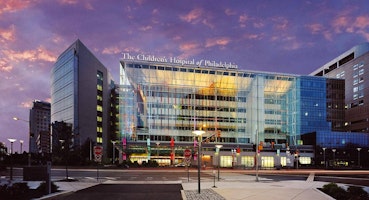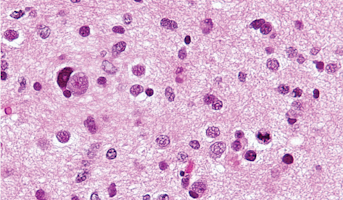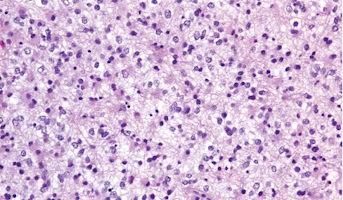The landscape of pediatric RTK-driven gliomas
Email Principal Investigator

Ana Guerreiro Stücklin
CBTN Data
Backer
Swiss National Science Foundation
About this
Project
Oncogenic fusions involving receptor tyrosine kinases (RTK) drive a group of low- and high-grade gliomas (LGG and HGG) in young children. The most common RTK rearrangements involve the oncogenes ALK/ROS1/NTRK/MET and provide an excellent opportunity for therapeutic targeting. These alterations are similar to those observed in multiple unrelated adult and pediatric tumor types, but their roles in gliomagenesis are still largely unknown.
The clinical features and natural history of pediatric RTK-driven gliomas remains uncharacterized. They are more common in infants but also prevalent in older children and adolescents. Interestingly, similar oncofusions drive both benign and malignant gliomas and additional genetic/epigenetic factors are likely to play a role in tumor behavior and explain the clinical heterogeneity.
Ask The
Scientists
What are the goals of this project?
In this project, we seek to characterize the genetic, epigenetic and transcriptional landscape of RTK-driven pediatric LGG and HGG. To define clinically-relevant tumor subgroups and assess their prognostic significance, we will evaluate the correlation between molecular and clinical characteristics.
In a first step, we will analyze WGS, WES and RNAseq raw and processed data of gliomas (all grades) already generated by the Children's Brain Tumor Network. Integration of clinical data – including age, histology, tumor location, dissemination, time to progression(s) and overall survival - will allow us to identify the molecular characteristics that dictate clinical presentation and determine benign vs malignant behavior.
In a second step, we intend to expand the cohort and profile additional samples available through CBTN (a detailed separate request will be made for specimen access). Lastly, based on the mechanistic insights gained, we will design and validate new drug combination strategies to accelerate clinical translation.
What is the impact of this project?
Taken together, these studies will provide mechanistic insights into RTK-fused gliomas and enable precision medicine approaches to treat these tumors.
Meet The
Team

Zürich, Switzerland

Toronto, Canada

Toronto, Canada

Philadelphia, PA, USA




Zürich, Switzerland
Institutions

Satellite
University Children's Hospital Zürich
The University Children’s Hospital Zurich the largest pediatric hospital in Switzerland and one of the leading pediatric centers in Europe. The Department of Oncology at the University Children’s Hospital is part of the Comprehensive Cancer Center Zürich and is in very close proximity to the world r

Sick Kids

Primary
Operations Center

Children’s Hospital of Philadelphia
Joined onOperations Center for the Children’s Brain Tumor Tissue Consortium, the Children’s Hospital of Philadelphia (CHOP) is currently ranked 1st nationally for their Pediatric Cancer Program by U.S. News & World Report. CHOP’s Biobank is home to the CBTTC’s pediatric brain and CNS tumor biorepository; the
related
Histologies

High-Grade Glioma
High-grade Gliomas (HGG) or astrocytomas in children nearly always result in a dismal prognosis. Although novel therapeutic approaches are currently in development, preclinical testing has been limited, due to a lack of pediatric-specific HGG preclinical models. These models are needed to help test

Low-Grade Glioma
Low-Grade Gliomas also called astrocytomas are the most common cancer of the central nervous system in children. They represent a heterogeneous group of tumors that can be discovered anywhere within the brain or spinal cord. Although surgical resection may be curative, up to 20% of children still su